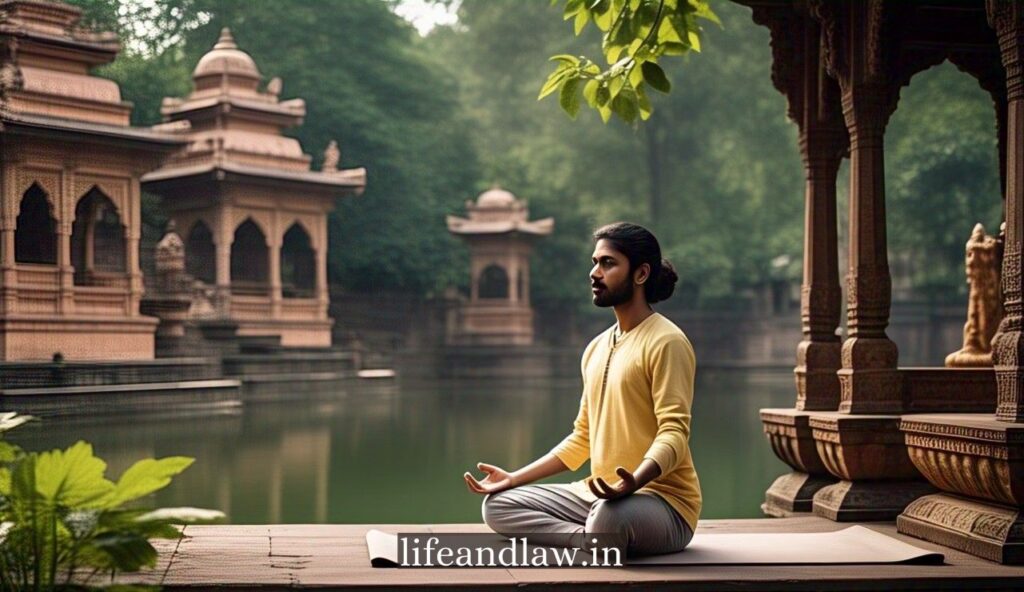Trending

Yoga, which originated in ancient India, has evolved from a spiritual practice to a global wellness movement embraced worldwide. While it offers numerous benefits, such as stress relief and improved flexibility, its widespread popularity raises concerns about the potential loss of its cultural and spiritual integrity.
This article aims to explore Yoga’s journey to global recognition, the legal efforts to protect its authentic traditions, and India’s role in preserving this ancient legacy. By doing so, we’ll examine how Yoga’s true essence can be maintained as it continues to transform lives around the world.
Yoga is a holistic practice that unites the body, mind, and spirit. Derived from the Sanskrit word “yuj”, meaning “to unite,” Yoga represents the connection of individual consciousness with the universal. Originating in ancient India, Yoga has been practiced for thousands of years to promote spiritual growth, health, and self-realization.
In 2014, the United Nations declared June 21st as International Yoga Day, recognizing Yoga’s universal benefits for physical, mental, and emotional well-being. This move, supported by 177 countries, highlighted Yoga’s global significance.
Today, millions worldwide practice Yoga, especially in the West, where it has become integral to wellness. With increasing scientific evidence backing its benefits for stress relief, flexibility, and overall health, Yoga continues to solidify its place in global culture.
As yoga becomes more popular around the world, questions about its cultural and spiritual integrity grow. The difficulty is to keep Yoga true to its roots while it is spread and practiced over the world.
India’s Role in Safeguarding Yoga
India has a responsibility to preserve Yoga in its original form. The Ministry of AYUSH plays an important role in standardizing techniques and teaching people about Yoga’s holistic advantages, ensuring that it stays a culturally significant practice in India rather than a fitness craze.
Intellectual Property and Yoga
Yoga’s global development has prompted ownership concerns, particularly as it becomes more commercialized. India is addressing these challenges by utilizing copyrights, trademarks, and patents to safeguard its cultural assets and prohibit the exploitation of Yoga-related terminology, symbols, and teachings.
Yoga and Cultural Diplomacy
Yoga is an effective weapon for cultural diplomacy. India has used yoga to boost its soft power, build partnerships with other countries, and promote its cultural legacy around the world. This work is more than just promoting a fitness fad; it is also about ensuring that Yoga is practiced in accordance with its spiritual and philosophical underpinnings.
Despite the recognition and legal safeguards, several challenges persist in protecting Yoga’s authenticity.
Commercialization of Yoga
In the West, yoga is usually seen as primarily a fitness practice, with little spiritual depth. Commercialization via branded retreats and goods has degraded its original nature.
Misrepresentation of Yoga
As Yoga gains popularity, it risks being misinterpreted by focusing solely on physical postures (asanas) while ignoring its intellectual and ethical precepts.
Balancing Tradition and Modernity
Balancing Yoga’s historical traditions with modern interpretations is a difficult task in today’s fast-paced society. While yoga must be accessible and relevant to modern audiences, it must also maintain its authenticity. The problem is to keep Yoga’s essential concepts intact while adapting to global needs.
As Yoga gains global recognition, India’s role in safeguarding its legacy becomes even more critical.
Cultural Preservation
India’s role extends beyond global promotion to the preservation of Yoga’s integrity through education about its origins, ethics, and deeper implications.
International Collaboration
India can continue to collaborate with foreign institutions, cultural groups, and the United Nations to preserve Yoga’s authenticity while spreading it worldwide. This collaborative approach guarantees that Yoga stays loyal to its roots while remaining accessible to the globe.
Legal Frameworks for Protection
As yoga grows in popularity, stricter legal structures are required to safeguard its cultural and intellectual property.
Yoga is much more than just a physical activity; it is a rich cultural and spiritual tradition that has molded India over thousands of years. As Yoga achieves global awareness, it is critical for India to protect its authenticity and guarantee that the practice honors its ancient origins. India can maintain this timeless practice by providing legal protection and continuing to promote Yoga around the world, allowing it to inspire and transform lives for future generations.
As we commemorate International Yoga Day on June 21st, remember that yoga is more than just poses; it is a journey to self-awareness, mindfulness, and a deeper connection with the world around us. This article has been written by Adv. Abdul Mulla. For legal advice or queries, please visit his websites: http://www.asmlegalservices.in and http://www.lifeandlaw.in.
Adv. Abdul Mulla (Mob. No. 937 007 2022) is a seasoned legal professional with over 18 years of experience in advocacy, specializing in diverse areas of law, including Real Estate and Property Law, Matrimonial and Divorce Matters, Litigation and Dispute Resolution, and Will and Succession Planning. read more….
Copyright BlazeThemes. 2025